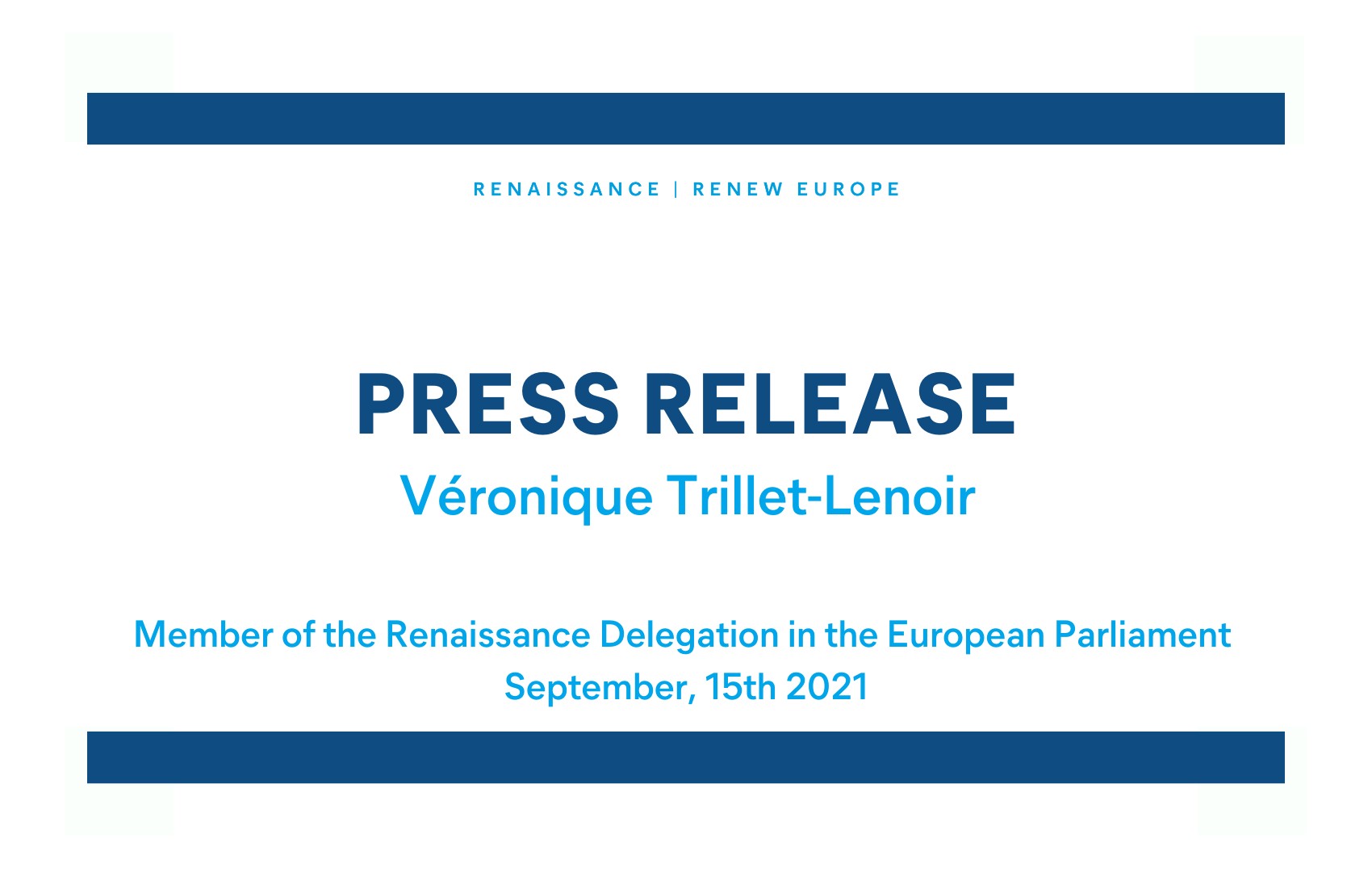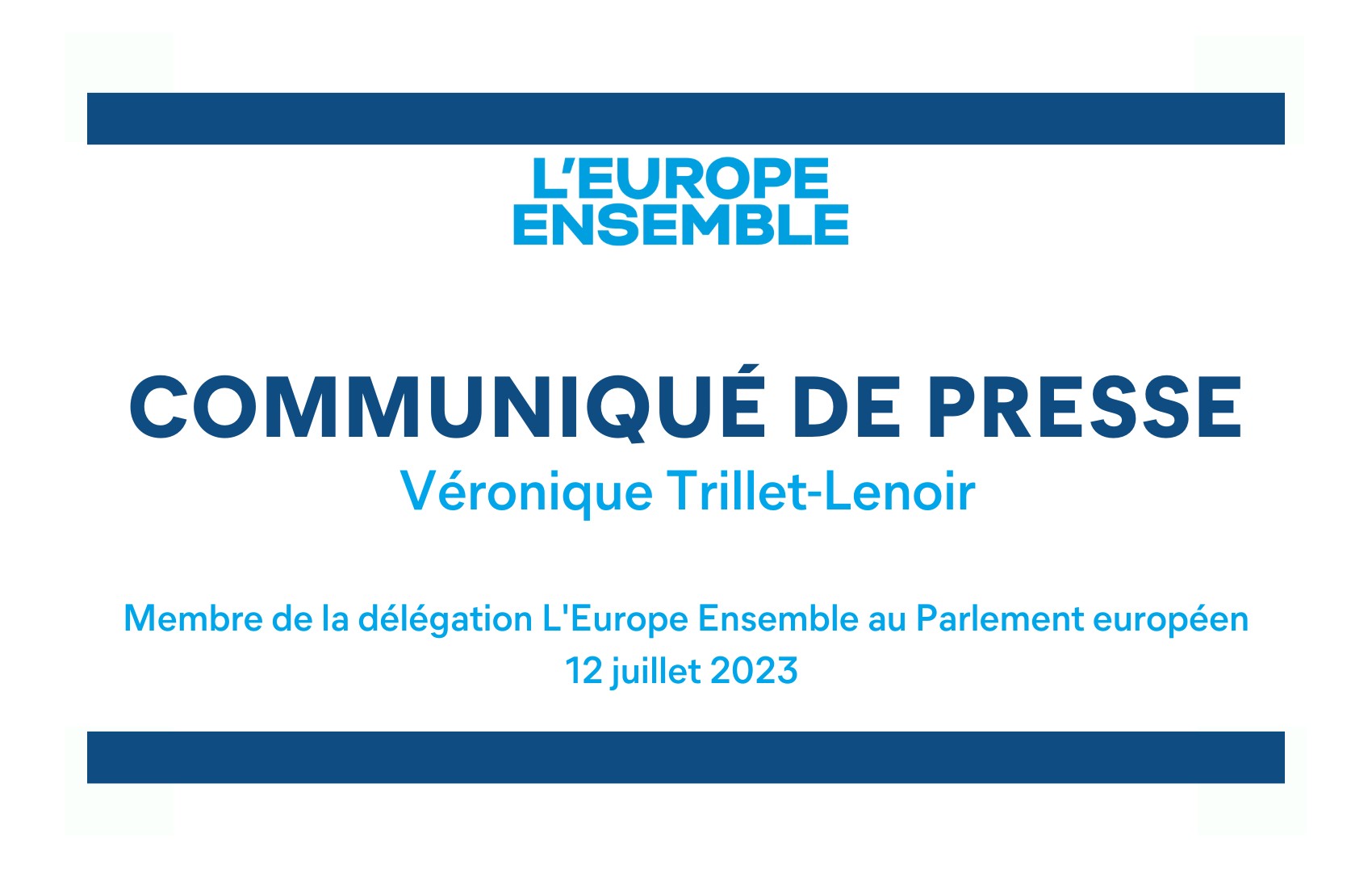This Wednesday, September 15th 2021, the European Parliament unanimously supported in plenary the report by Véronique Trillet-Lenoir, french MEP from the Renaissance delegation, on the regulation on serious cross-border health threats.
This future emergency plan is the first steps towards a European Health Union.
“This report clearly responds to the 74% European citizens who call for more European competencies in crisis management” says Renew Europe Deputy-Coordinator on the ENVI Committee.
“In my report, I strengthen the legislative proposal of the European Commission allowing European Union to prevent and respond to any kind of future threat for public health. Beyond infectious diseases, the European Union isn’t currently enough protected against environmental, food, biological, chemical or other threat. European citizens want the EU to have more skills to protect them from health risks and they won’t tolerate any European or national trial and error anymore. We must seize this legislation to implement a European coordination in anticipating and responding to health crises” the MEP insists.
“Our priority must be to guarantee a ‘health solidarity’ by reducing health inequalities within member states and beyond Europe. This is the reason why I fully support the creation of an International Treaty on Pandemics, to ensure a better preparation and a coordinated answer in the face of futures pandemics.” says Véronique Trillet-Lenoir.
“Since the beginning of my mandate in the European Parliament, I’ve been standing for the idea of ‘One Health’ in every European policies. This transversal vision of health must guide our entire crisis anticipation and management system, whatever its nature. The Covid-19 crisis shows how a public health issue might affect the proper functioning of all European sectors. The involvement of all health authorities in the risk assessment of a threat fits perfectly into this approach. Among them, the European Centre for Disease Prevention and Control (ECDC) must have a key role in this institutional architecture: in my report, I suggest that ECDC surveillance be extended to the impact of communicable diseases on non-communicable diseases or on people at risk, including cancer patients. I also propose that ECDC reinforce its communication to European citizens by establishing a portal designed to share checked information. This tool would make it possible to fight against the fake news that proliferate and create an "infodemia" on social networks” adds the French MEP.
“The Covid-19 crisis also underlined an old observation: the European Union has become dependent on medical products. To compensate for this dependance, it is now urgent to ensure a European approach and to reinforce the response capabilities of the European Medicinal Agency. What I wish is that, in every European and national crisis preparedness and response plans, all medical products (personal protective equipment, medicines, vaccines, medical devices) are taken into account in the Member States’ resources and capacities. Reserves of these products, risks of shortages and assessment of production capacity of these products should be assessed in the framework of national plans and their audits. Besides this, I fully support the generalisation of the joint purchase procedure for medical products. As far as negotiating with industry is concerned, the European Union is stronger when it speaks with one voice, on behalf of all Member States. This collective negotiation will guarantee an equal access, at the same time, to every European citizen. This procedure should also be considered outside of health threats," underlines Véronique Trillet-Lenoir.
“This strengthened crisis preparedness and management system should be based on inclusive health governance, involving national (and regional where necessary) authorities. The Covid-19 crisis demonstrated that European citizens seek more transparency and participation in the decision-making process. This is why I suggest giving the European Parliament an important observer role within the Health Security Committee. I also suggest giving an important role to civil society representatives in the Advisory Committee and finally, involving all authorities in the implementation of European and national crisis preparedness and response plans” reminds the Member of European Parliament.
“This legislative proposal and the ones concerning the revision of the mandates of the EMA and the ECDC outline the contours of a real European Health Union. European citizen’s expectations are high. They will have the opportunity to clarify them during the Conference on the Future of Europe and we will make sure that they’re listened. With a budget of 5.1 billion euros for 2021-2027, the European Health program, EU4Health, finally gives us the means to prioritize consistency and efficiency in our health policy.
At the European Parliament, all-women EP negotiating team intends to grab this opportunity. We truly hope that Member States will share this enthusiasm with us during the institutional negotiations, which will take place next autumn” concludes Véronique Trillet-Lenoir.
Press contact: claudie.gilot@europarl.europa.eu



